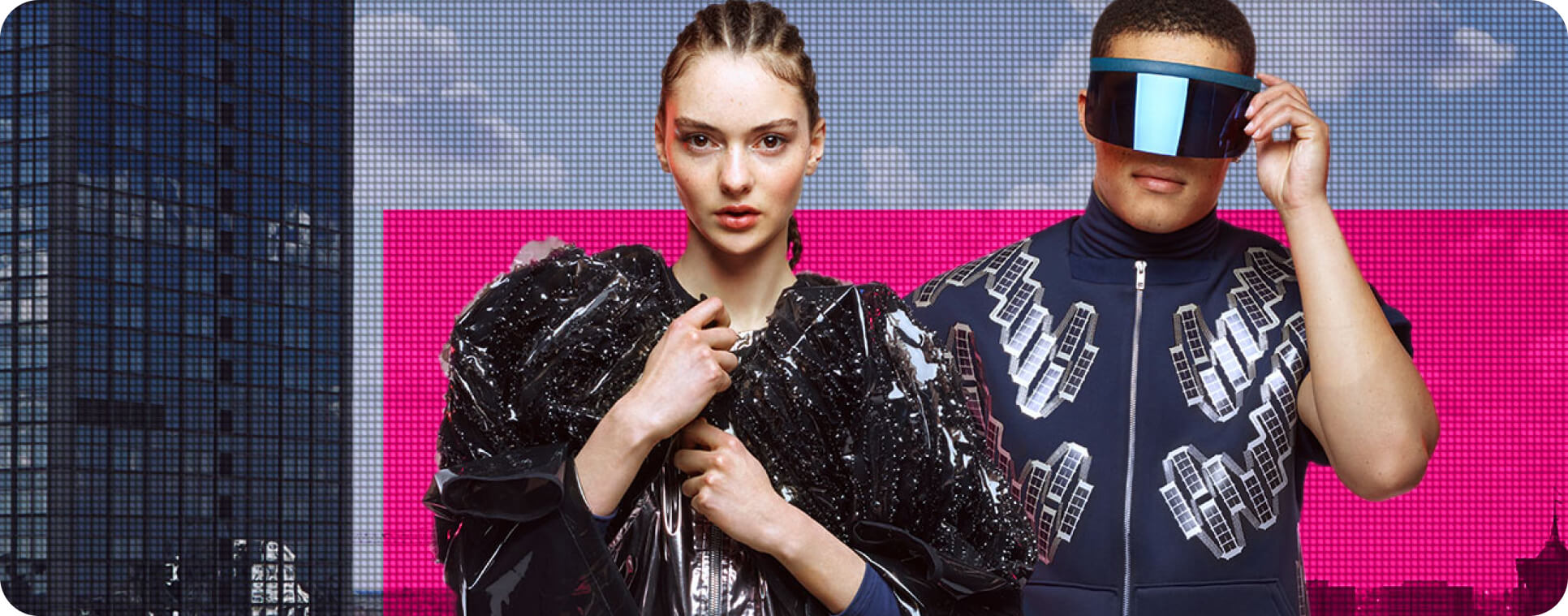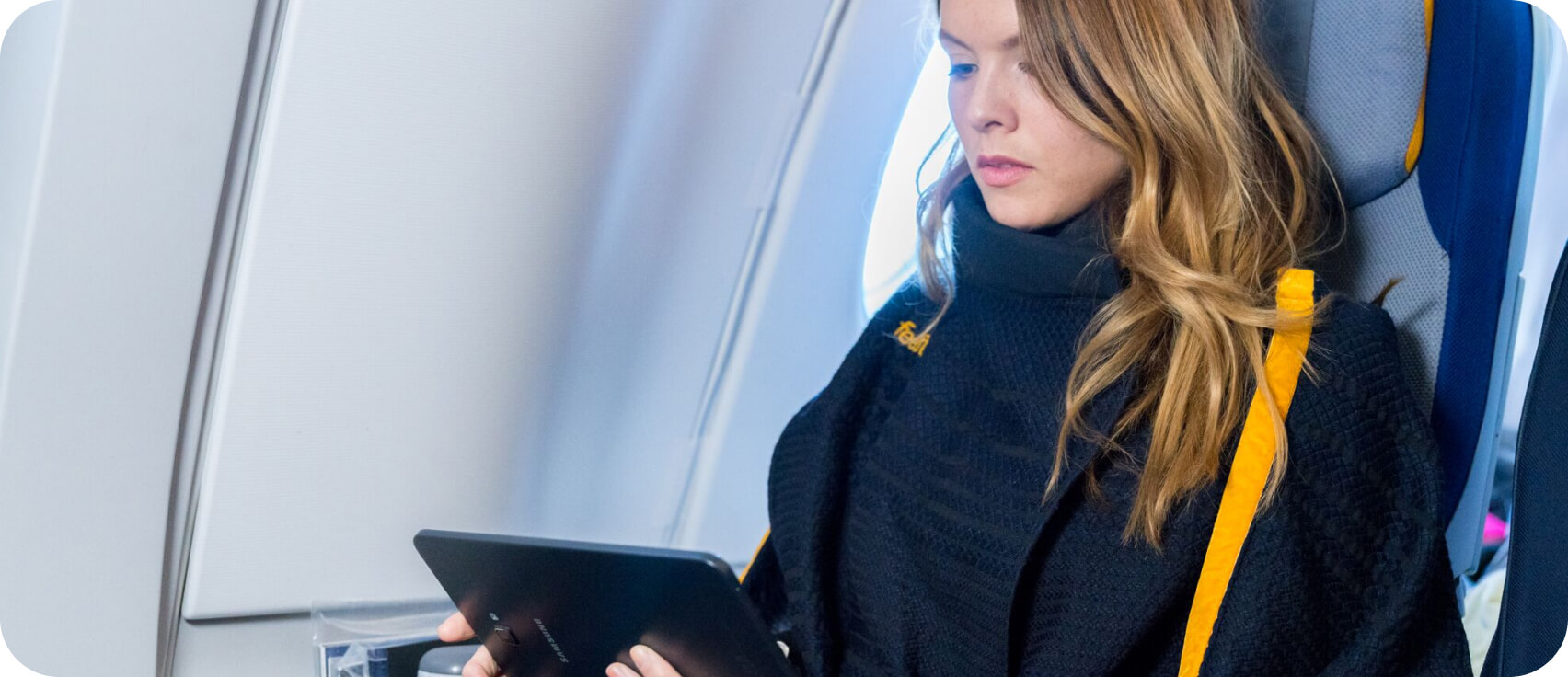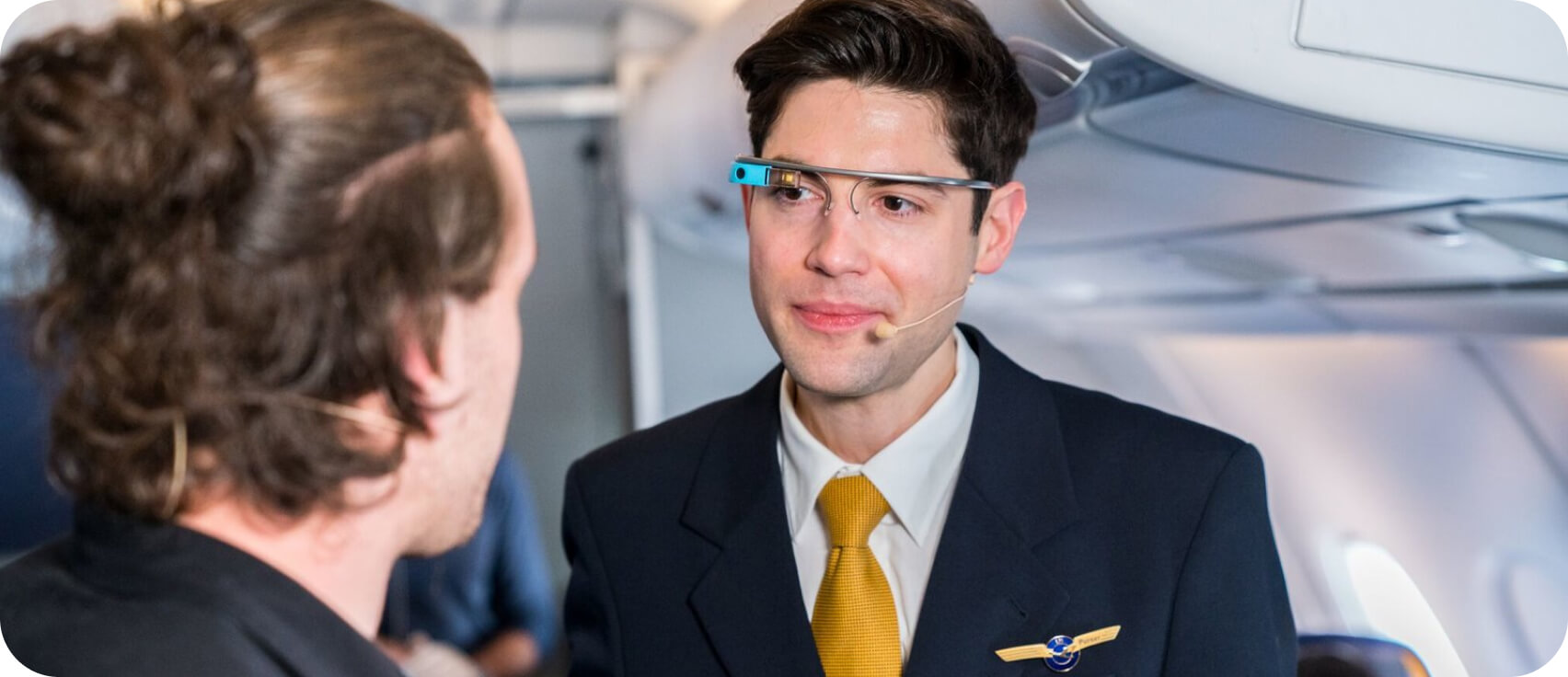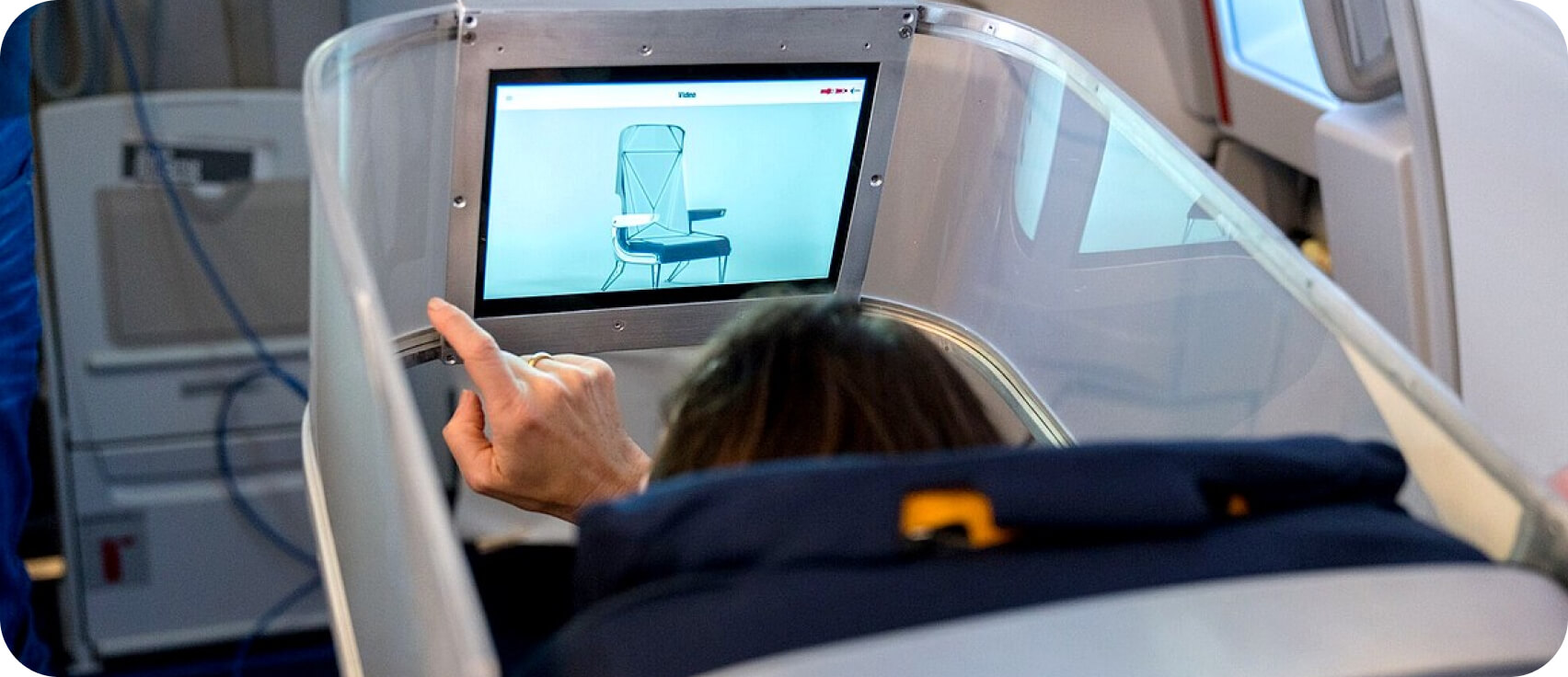
Lufthansa Fyling Lab
In 2017, an exclusive challenge, “Telekom Fashion Fusion & Lufthansa FlyingLab,” was introduced in partnership with Lufthansa. Telekom and Lufthansa Flying Lab collaborated on the second round of the Telekom Fashion Fusion Labs, focusing on the fusion of technology and fashion. The competition aimed to develop relevant, functional, sustainable, and intelligent fashion, seeking innovations benefiting the crew and passengers, such as smart textiles for uniforms, health improvements during long flights, and smart services for onboard communication and entertainment.
The first prototypes of the participants were tested in January 2018 during a Lufthansa FlyingLab flight to CES Las Vegas. The finalists of the competition refined their prototypes aimed at enhancing the flying experience. Three teams—feel.flight, Smart Chair, and Lyra—presented their final solutions during a flight from Frankfurt to Houston. These teams utilized various modern technologies, including 3D printing, laser cutting, and artificial intelligence, in developing their prototypes. The collaboration between Telekom and Lufthansa aims to make flying more individualized and comfortable, with the prototypes set to be tested further and showcased at international events.

Team feel.flight
The feel.flight team originated a product system for long-haul flights, enhancing passenger wellbeing and optimizing the support provided by flight attendants. The communicative aspect involves an AI chatbot accessible through messenger apps, capable of addressing passengers’ needs and organizing them hierarchically. The tangible level includes an extended in-flight entertainment system with a menu for controlling smart devices. The team utilized modern technologies, successfully creating advanced prototypes in a short time. The jury believes further development towards series production is realistic, given the integration of various components and the team’s rapid prototyping capabilities.

Team LYRA
Team LYRA developed the “LYRA Connect” web application to enhance communication between passengers and flight personnel, reducing walking distances and optimizing in-flight services. Passengers can use their mobile devices to send requests to the flight crew. The web app is platform-independent, working on smartphones, tablets, and laptops without installation. Flight attendants, equipped with smart glasses, receive requests directly, allowing prompt fulfillment. LYRA enables flight attendants to request information about passengers, providing discreet data on language preferences and food choices. The system creates a “mini Internet” using various devices that function offline in an aircraft. The plug-and-play system is user-friendly, and if the connected hardware solutions prove effective, the LYRA Connect system can be implemented.

Team Smart Chair
Team Smart Chair implemented the Smart Chair project as a concept study focusing on the passenger’s private space during long-haul flights. The goal is to provide an entirely individualized flight experience, considering ergonomic, technical, sustainable, and individual passenger needs. The concept features a folding head display creating a private space for the passenger, along with various hidden features in the seat. Due to the unavailability of curved OLED screens, alternative methods were used to simulate the desired effect. For instance, the head display is equipped with a tablet covered with a film that can switch from opaque to transparent. Additionally, the Smart Chair team designed new heat-regulating, breathable, antibacterial, and hypoallergenic uniforms for the cabin crew. The jury concludes that the project is visionary, lacking market-ready technologies for short-term implementation. While flexible OLED displays are in testing, their massmarket availability is a few years away, and similar challenges exist for smart materials. Heatable materials show promise, but safety-related hurdles need addressing before their use in aircraft.
You are currently viewing a placeholder content from Elfsight. To access the actual content, click the button below. Please note that doing so will share data with third-party providers.
More InformationYou need to load content from hCaptcha - Formidable to submit the form. Please note that doing so will share data with third-party providers.
More InformationYou need to load content from reCAPTCHA to submit the form. Please note that doing so will share data with third-party providers.
More InformationYou need to load content from Turnstile to submit the form. Please note that doing so will share data with third-party providers.
More InformationYou are currently viewing a placeholder content from Instagram. To access the actual content, click the button below. Please note that doing so will share data with third-party providers.
More Information